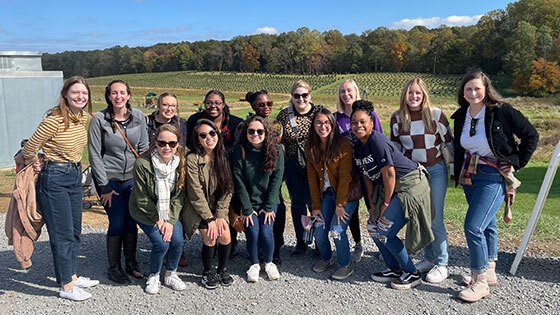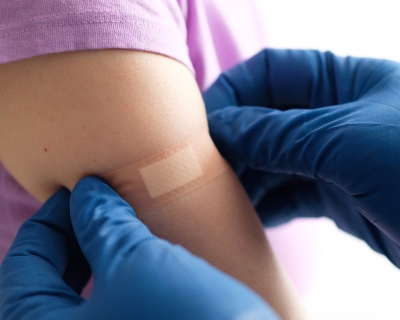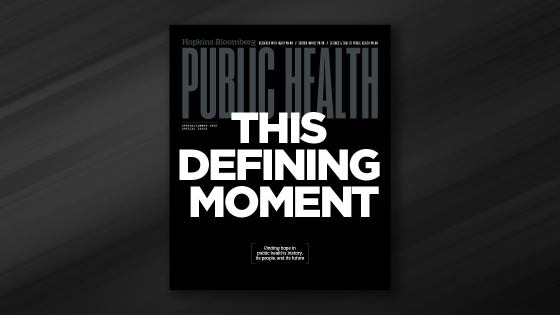
Train Here. Change the World.
Applications are open for all programs. Join us in building healthier communities, and preventing illnesses and injuries.
LEARN ABOUT STUDENT LIFE CONNECT WITH CURRENT STUDENTS VIEW EVENTS CALENDAR
Our Academic Program Offerings
Our programs welcome those from within and outside the traditional boundaries of public health. Whether you're a future college graduate, a midcareer public health leader, or someone looking to make a career change, we have a program for you.
Master of Science in Public Health (MSPH)
The Master of Science in Public Health (MSPH) is a professional degree alternative to the Master of Public Health (MPH) degree for students who want more focused skills in a specific field of public health or who lack two years of health-related work experience to begin or advance a career as a public health professional. MSPH programs generally require one academic year of coursework, followed by a field placement. The field placement duration and location vary by department/concentration.


Master of Public Health (MPH)
The Master of Public Health (MPH) is our most flexible degree. With 12 concentrations to choose from, students can tailor their degree to their unique goals while completing classes at their own pace on campus, fully online, or a mix of the two.
Headlines

What VAERS Is (And Isn’t)
Anyone can report a post-vaccination health issue to the Vaccine Adverse Event Reporting System—which anti-vaccination activists often misuse to sow misinformation and distrust.

Measles Outbreaks in the U.S. Highlight the Importance of Vaccination
Experts worry that misinformation and falling vaccination rates could cause measles outbreaks to become more common in the U.S.

Vaccines Don't Cause Autism. Why Do Some People Think They Do?
How a retracted study from the 1990s led to a persistent myth about vaccines.

How Cuts to mRNA Vaccine Development Will Set the U.S. Back
mRNA vaccine technology has huge potential for treating not just infectious diseases but cancer and many chronic diseases—advances that may be threatened by funding cuts.

How New Federal Legislation Will Affect Health Care Costs and Access for Americans
Two health policy experts explain how new federal legislation will affect eligibility for and affordability of health insurance—and how individuals can prepare to avoid losing coverage.

The Science of Vaccine Safety in the U.S.
Clinical trials, government agencies, and data systems ensure vaccines meet high safety standards.

This Defining Moment
The new special issue of Hopkins Bloomberg Public Health magazine finds hope in public health’s history, its people, and its future. It documents the broad and emerging impacts of U.S. government funding cuts on a wide range of research and projects in the U.S. and abroad, the scientists who conduct that work, and the people who benefit from it. It also highlights public health in action, and shares stories with lessons that can help us navigate the current moment.
Research Saves Lives
Without research—at Johns Hopkins and at thousands of other universities, medical schools, and research institutions across the nation—scientific breakthroughs suffer, and the lifesaving treatments of tomorrow are at risk.

For more on measles, check out these regularly updated resources from our Centers:
U.S. Measles Tracker from the International Vaccine Access Center
Measles Outbreak Response Strategies from the Center for Outbreak Response Innovation
Subscribe to Stay Informed
Meet Our Faculty
Our faculty are world-renowned experts, and trusted advisers to our students, public health leaders, and the public.

Emily Ann Kumpf, MPH ’23, excels in cross-sector collaborations, innovative project management, and mentoring future public health leaders to drive impactful, evidence-based public health interventions.

Benjamin Huynh, PhD, uses data science and AI to address public health issues related to environmental injustices and disasters.

Aisha S. Dickerson, PhD, MSPH, studies environmental exposures and their disproportionate impact on autism and dementia risk in underserved communities across the lifespan.
Joseph Bressler, PhD, studies how environmental pollutants affect neurodevelopment with specific interests in autism and fetal alcohol syndrome.
Join Us in Baltimore
Pursue a degree at the #1 school of public health in one of America's best cities. With 50+ museums, a bustling restaurant scene, gorgeous parks, and more, Baltimore is a great place to study and live.
Why Choose the Johns Hopkins Bloomberg School of Public Health?
#1
Ranked by U.S. News & World Report since 1994
1st
and Largest School of Public Health
1,800+
Courses Offered
80+
Research Centers and Institutes
28K+
Alumni Living in over 115 Countries
90+
Degree Programs
45
Certificate Programs
3:1
Student-to-Primary-Faculty Ratio
Support Our Work
Our work is made possible in part by contributions from Bloomberg School donors.

